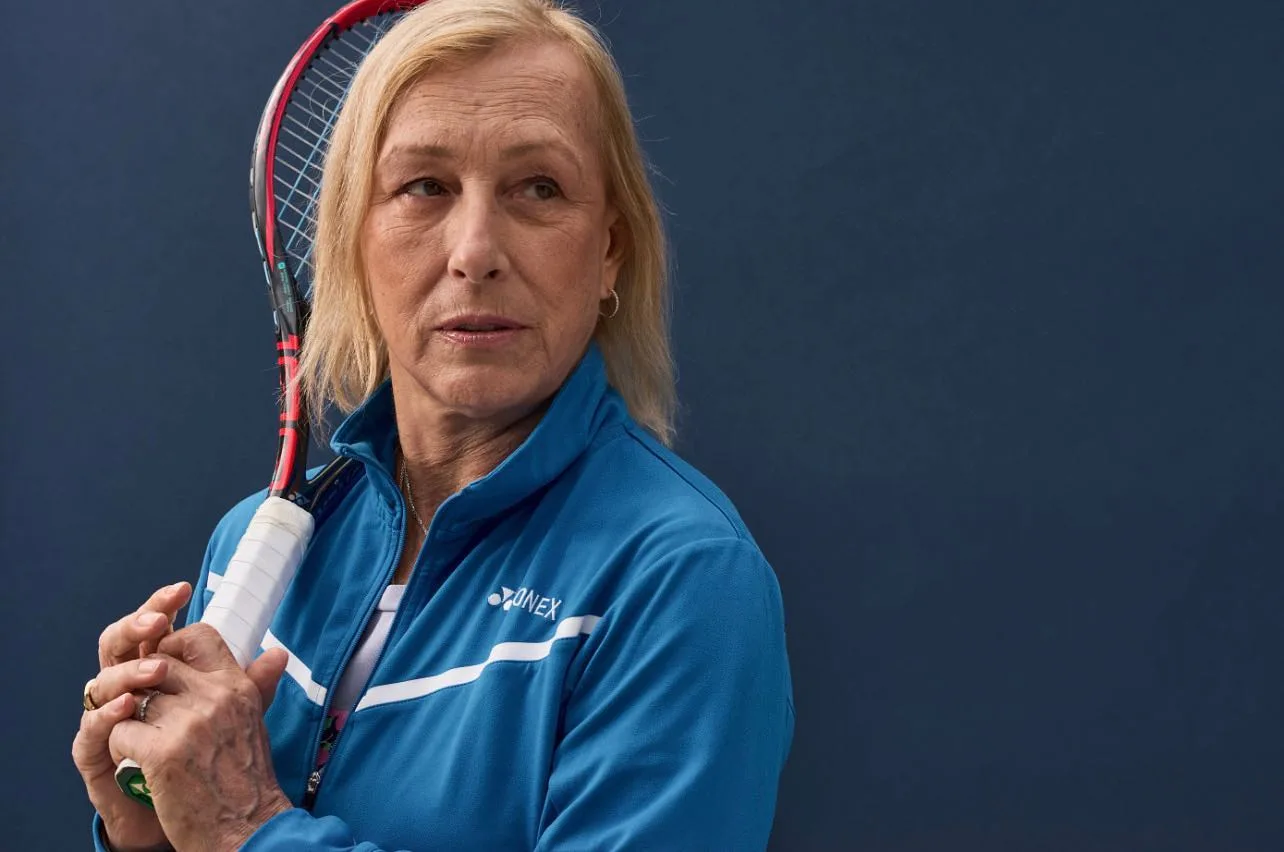Four months after her initial diagnosis, 59-time Grand Slam winner Martina Navratilova has announced that she is in remission after her throat and breast cancer diagnosis.
Initial Cancer Diagnosis
Navratilova, 66, first revealed she had stage one throat cancer and early-stage breast cancer in January. This came after she noticed an enlarged lymph node in her neck during the Women’s Tennis Association finals in Fort Worth, Texas.
‘I noticed that my lymph node was enlarged, and I thought it was from a shingles vaccine I’d had a week before. Then a couple of weeks on it didn’t go down, so I called the doctor,” she says. She shares how the biopsy not only revealed human papillomavirus (HPV) related throat cancer, but unrelated breast cancer too.
Link to Human Papillomavirus
The human papillomavirus has been shown to cause about 70% of throat/oropharyngeal cancers. Otis Brawley, professor of oncology at Johns Hopkins University, says. “HPV-related cancers are increasing in the United States, sharing that “the incidence rate has doubled over the last 15 years.”
Affecting the base of the tongue and tonsils, some symptoms of oropharyngeal cancer include a long-lasting sore throat, earache, and swollen lymph nodes. However, this was half of the battle.
How Common Is A Double Cancer Diagnosis
This double cancer diagnosis can be terrifying, but how common is it?
Researchers estimate that about 1 in 20 people with cancer have another separate cancer at the same time. “At the same time” refers to two tumors occurring within less than 6 months of each other. According to Jessica McDermott, M.D., assistant professor of medical oncology at the CU School of Medicine, while being diagnosed with two unrelated cancers at the same time was unusual, Navratilova’s history with breast cancer makes it make sense.
Dr. McDermott further explains that “if she had chemotherapy or anything else related to her prior breast cancer, that would alter her immune system – that sometimes increases the risk of HPV-related cancers.”
A History Of Cancer
In 2010, Navratilova announced that she was being treated for breast cancer after a tumor was discovered during a routine mammogram. The tumor was removed and she underwent brief radiation therapy.
This has been shown to lower your chance of breast cancer recurrence within 10 years to 3%-15%. Breast cancer is the most common type of cancer worldwide and the leading cause of cancer-related deaths among women. This highlights the importance of mammograms and self-examination.
The Importance of Breast Self-examinations
Breast self-examination allows you to pick up on any abnormalities in the breast tissue. Studies have shown that breast self-examination can be beneficial in detecting cancer. It helps you understand the normal look and feel of your breasts. A significant number of women have reported that the first sign of breast cancer was a new breast lump that they discovered on their own. This is why doctors recommend being familiar with the normal consistency of your breast.
An Arduous Treatment
During the illness, Navratilova underwent radiation treatment on a daily basis for three weeks. She also underwent three weekly rounds of chemotherapy. Calling it “the hardest thing (she’s) ever done”, sharing how the first week of treatment consisted of both chemotherapy and radiation at the same time, a process known as chemoradiotherapy.
Chemoradiotherapy
In chemoradiotherapy, the chemo aspect uses anticancer drugs to destroy cancer cells, while radiotherapy uses radiation. This treatment is used to treat early-stage esophageal cancers. It can also shrink cancer before surgery, making it easier to remove. You may have chemoradiotherapy instead of surgery if you have squamous cell cancer that hasn’t spread.
Common side effects include:
- Tiredness
- Breathlessness
- Difficulty swallowing
- Loss of appetite
- Weight loss
- Voice changes
Occasional side effects include:
- Periods stopping
- Loss of fertility
- Heart problems
- Ringing in the ears
Rare side effects include:
- Eyesight changes
- Second cancer develops years after treatment
The Battle Won
“… I’m still in God’s hands whether or not (I’m) going to be 100 percent or not, but (I) hope for the best,” she says, sharing her journey and the determination she had to “fight it with all I’ve got”.
This is an inspiring story that raises awareness of cancer and places emphasis on the importance of self-examination. This can help in the early detection of various cancers, increasing your chances of full recovery.
MAIN IMAGE CREDIT: martinanavratilova/instagram
References
- Rogel‐Salazar, J. and Ramdoo, K., 2023. AI in Ear, Nose, and Throat. AI in Clinical Medicine: A Practical Guide for Healthcare Professionals, pp.233-238.
- Rallis, K.S., Yau, T.H.L. and Sideris, M., 2021. Chemoradiotherapy in cancer treatment: Rationale and clinical applications. Anticancer Research, 41(1), pp.1-7.



